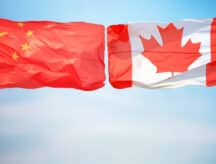What you need to know before moving to British Columbia
The third largest province in Canada, British Columbia is the westernmost province in this country and is home to over one million newcomers.
This province is often renowned as among Canada’s most naturally beautiful, where residents and visitors can find 40 provincial parks and six of Canada’s national parks. British Columbia is also known for its milder weather patterns, as this region of Canada provides four distinct seasons without the extreme frigid temperatures often found in other Canadian provinces and territories.
Discover if You Are Eligible for Canadian Immigration
Read more here about landing and settling in British Columbia as a newcomer to Canada.
Housing
British Columbia has one of the country’s largest housing markets.
Note: In British Columbia, and every other Canadian province, housing prices and available property types will depend on factors such as your desired settlement location and the size of your family
According to the latest National Rent Report by rentals.ca (for August 2023), the following numbers represent the average rent for a one-bedroom and two-bedroom housing unit in this province’s three largest Census Metropolitan Areas (CMAs) by population – Vancouver, Victoria and Kelowna.
One-Bedroom: Vancouver ($3,013), Victoria ($2,054) and Kelowna ($1,947)
Two-Bedroom: Vancouver ($3,918), Victoria ($2,753) and Kelowna ($2,790)
Commuting
In this province’s three largest CMAs – Vancouver, Victoria and Kelowna - at least 73% of residents live less than 500 metres from a “public transit access point*.”
*In Victoria and Vancouver, that number is at least 90% while Kelowna is 73.7%
Public transportation options in British Columbia vary by city, but many cities across the province have public transportation options including buses, the SkyTrain and the SeaBus.
Still, many of British Columbia’s residents use a car, van or truck as their main mode of commuting. Therefore, it is important that newcomers to British Columbia understand the following about driving in this province:
- For the first 90 days as a new resident of this province, newcomers above the legal driving age may use their home country-issued driver’s license in this province
- At the end of this 90-day period, newcomers must obtain a British Columbia driver’s license from the provincial government
Employment
When it comes to the major industries in British Columbia, this province is known for its diverse economic sectors, which include the following key contributors to British Columbia’s economy:
- Natural Resources
- Technology and Innovation
- Film and Television Production
- Tourism and Hospitality
- Agriculture and Food Production
- Manufacturing
- Construction and Real Estate
The Immigrant Employment Council of BC is a British Columbia-based organization that connects employers with immigrant talent, offering programs, resources, and tools to support newcomers in their job search.
Healthcare
Canadian public healthcare is funded through a universal healthcare model. In other words, resident taxes are combined to pay for the healthcare services that Canadians enjoy free of charge at the point of sale in British Columbia and across Canada.
In this province, residents must wait 2 months plus the remainder of the month after residence in the province is first established to be eligible for public healthcare via the province’s Medical Services Plan (MSP).
After they become eligible for public healthcare, all newcomers to British Columbia can access designated medical services as long as they have a valid health card.
Here is more information on applying for a health card in British Columbia.
Generally, a health card gives British Columbia residents access to certain public health services for free. However, certain treatments and medications will require the recipient to pay out of pocket. This is where private health insurance becomes crucial for residents of this province.
Education
From the age of six, until they graduate high school, children in British Columbia must be a part of the province’s education system.
British Columbia takes pride in its outstanding public education system, with K-12 students consistently achieving top rankings worldwide in assessments.
In addition to the public system, this province offers a network of independent schools that provide both day and boarding programs. To enroll their children in private education, parents will need to pay tuition out of pocket.
For post-secondary education seekers, British Columbia has over 275 different Designated Learning Institutions (DLIs). It is important to note that only a DLI in British Columbia can accept international students and offer programs eligible for a Post Graduate Work Permit (PGWP) upon completion. It is possible to obtain a PGWP after completing certain (but not all) programs from many DLIs in this province.
A PGWP, upon completing one year of work experience in Canada, allows the holder to broaden the number of Canadian permanent resident immigration pathways that they could be eligible for. This is because many of these programs reward candidates with Canadian work experience.
Taxation
Sales tax in British Columbia includes both a Provincial Sales Tax (PST) and the federal Goods and Services Tax (GST). At present, the PST is 7%, while GST stands at 5%.
Income taxes in this province vary between 20%-53% depending on one’s tax bracket, with the marginal tax rate increasing as your income and corresponding tax bracket increases. To learn more about personal income tax rates in British Columbia, click here.
Newcomer services in British Columbia
Newcomer services in British Columbia, as they do in all parts of Canada, encompass everything from employment help, language training, and daycare to community and cultural events, legal help, and more.
In British Columbia, settlement services are managed under the British Columbia Settlement and Integration Services (BCSIS) program.
Note: Eligibility for newcomer services depends largely on the service provider. Depending on your location of residence, and legal status in Canada, you may be eligible for some services and not others.
For more information on the BCSIS and to find settlement services available across British Columbia, visit the provincial government page here. For a full list of government-funded newcomer settlement services across Canada, which can be filtered by type of service desired and province, click here.
- Do you need Canadian immigration assistance? Contact the Contact Cohen Immigration Law firm by completing our form
- Send us your feedback or your non-legal assistance questions by emailing us at media@canadavisa.com






